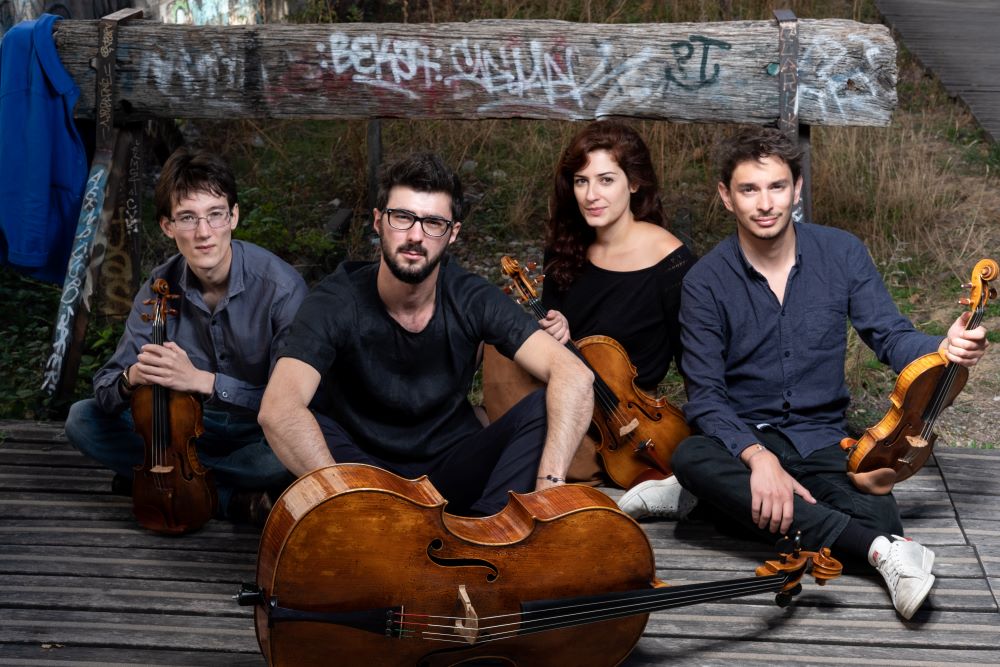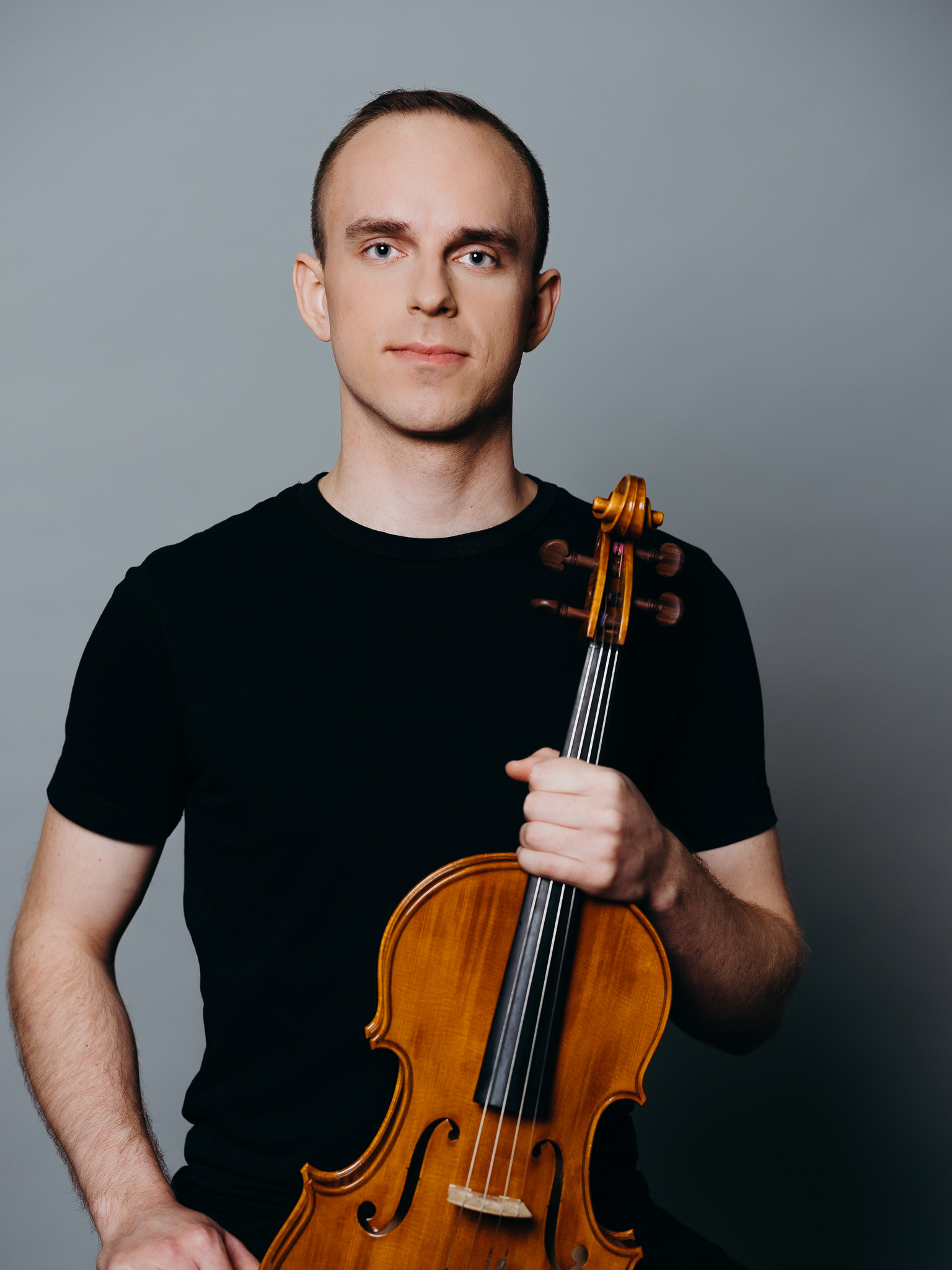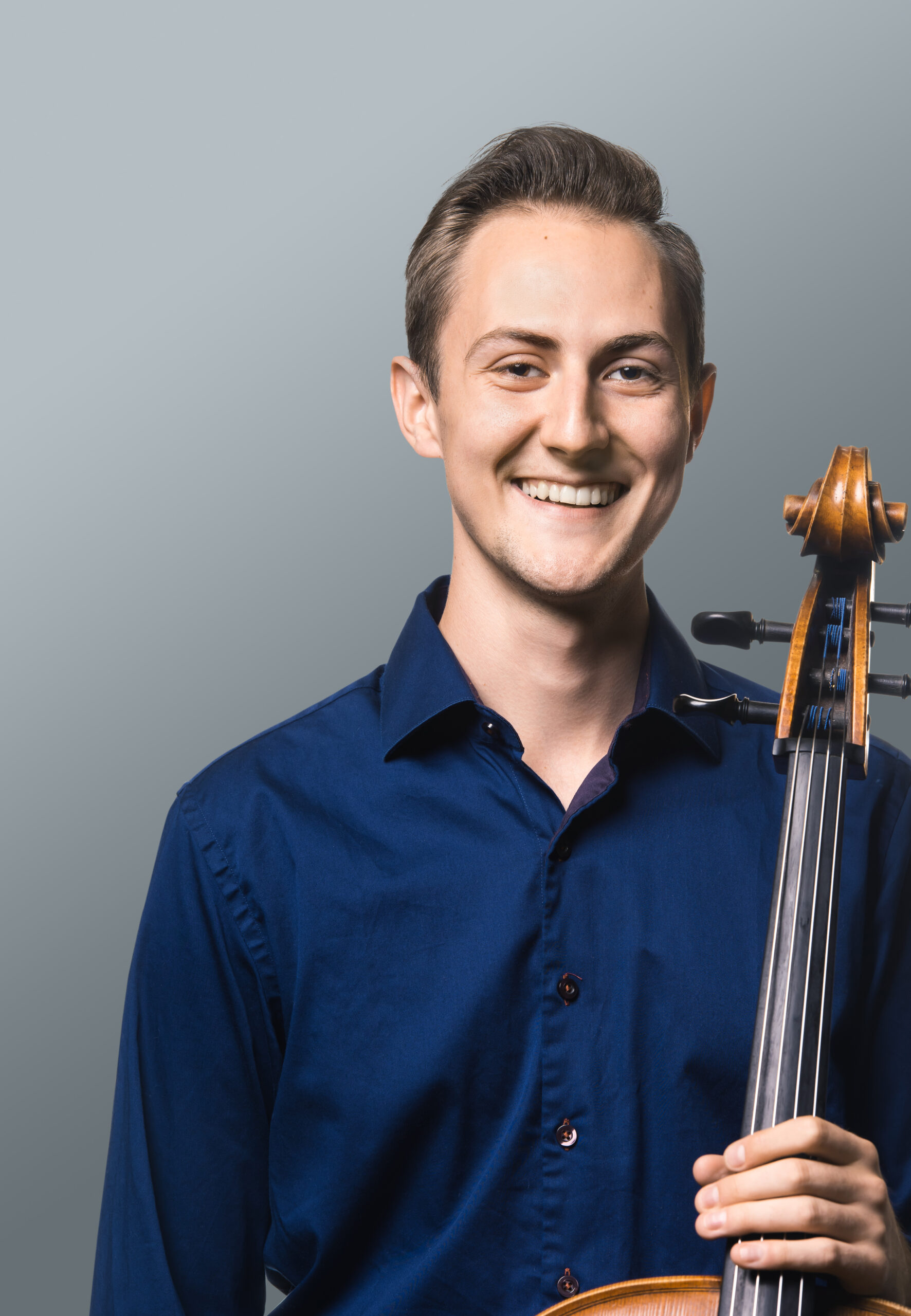Performers
- Quatuor Hanson
- Anton Hanson violin
- Jules Dussap violin
- Gabrielle Lafait viola
- Simon Dechambre cello
- Tomasz Rosiński II viola
- Mateusz Błaszczak II cello
Programme
Leoš Janáček String Quartet No. 1 Kreutzer Sonata, JW VII/8 [19’]
I. Adagio – Con moto
II. Con moto
III. Con moto – Vivace – Andante – Adagio
IV. Con moto – Adagio – [Maestoso]
Arnold Schönberg Verklärte Nacht (Transfigured Night) for string sextet, Op. 4 [30’]
Concert description
What defines expressionism? A piece including death, the night, and a woman. The origins of that joke probably have much to do with the early work of Arnold Schönberg, one of the pioneering figures in 20th century music. Well, his string sextet Verklärte Nacht at least spares us death. The inspiration for the piece came from a poem by Richard Dehmel: in this story of betrayal and forgiveness, a woman confesses to her beloved one she is going to give birth to another man’s child. Despite learning the bitter truth, her lover embraces her. Then the two watch the break of dawn, a promise of new happiness.
The subtitle of Leoš Janáček’s 1st String Quartet seems like a reference to a masterpiece by Ludwig van Beethoven, the Violin Sonata No. 9 in A major, also called The Kreutzer Sonata. As it turns out, however, the piece, much like the one by Schönberg, was inspired by a literary work, specifically a novella by Leo Tolstoy. In it, since it is a story of a jealous husband killing his wife, we will indeed find both death, and a woman. The score is replete with instructions for musicians. “Serenely”, “expressively”, “harshly”, “sweetly”, “energetically”, “passionately”: those are just some of the words used by the composer. Janáček clearly wanted the quartet to reflect the various emotions underpinning the literary original.
Dominika Micał, “Ruch Muzyczny”






